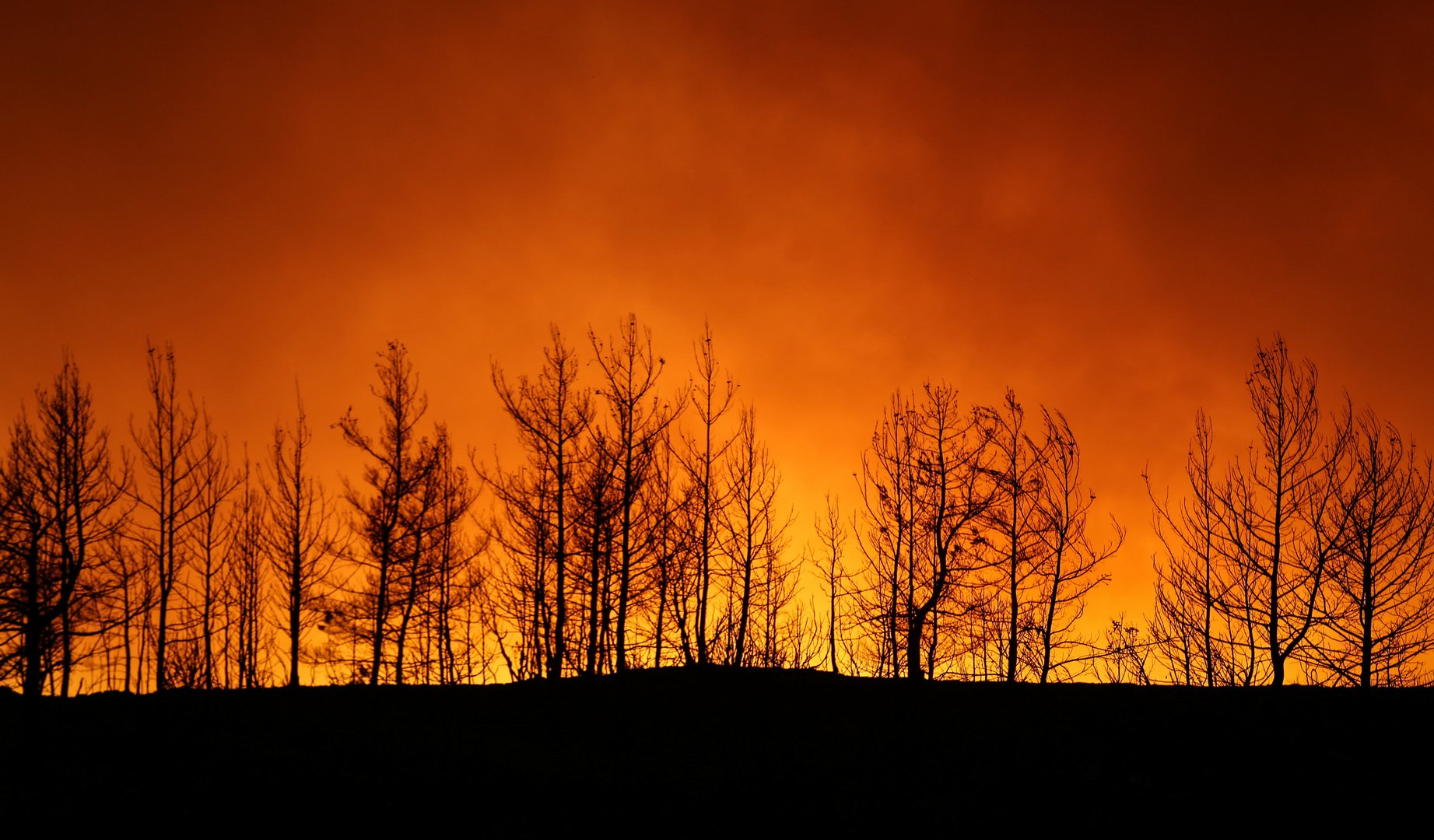Firefighters battled wildfires in Turkey and France on Monday as an early heatwave hit the region.
In Turkey, the wildfires raged for a second day in the western province of Izmir, fanned by strong winds, Forestry Minister Ibrahim Yumakli said, forcing the evacuation of four villages and two neighbourhoods.
Media footage showed teams using tractors with water trailers and helicopters carrying water, as smoke billowed over hills marked with charred trees.
Turkey’s coastal regions have in recent years been ravaged by wildfires, as summers have become hotter and drier, which scientists say is a result of human-induced climate change.
In France, where temperatures are expected to peak on Tuesday and Wednesday, wildfires broke out on Sunday in the southwestern Aude department, where temperatures topped 40 degrees Celsius (104 degrees Fahrenheit), burning 400 hectares and forcing the evacuation of a campsite and an abbey, authorities and local media said.
The fires were under control but not yet extinguished, authorities said on Monday.
Weather service Meteo France put a record 84 of the country’s 101 departments on an orange heatwave alert from Monday until midweek. About 200 schools will be at least partially shut over the next three days because of the heat, the Education Ministry said.
HEATWAVE IMPACTS RHINE SHIPPING
The heatwave has lowered water levels on Germany’s Rhine River, hampering shipping and raising freight costs for cargo owners, commodity traders said.
The Rhine is an important shipping route for commodities such as grains, minerals and oil products. Forecasters said temperatures as high as 40 C are possible in Cologne.
In Seville, southern Spain, where global leaders were gathering for a United Nations conference, temperatures were expected to hit 42 C.
Tourists were trying to deal with the heat. “Really hard currently,” Mehrzad Joussefi, from the Netherlands, said.
Spain is on course for its hottest June on record, the national meteorological service AEMET said.
Most of the country remains under alert for heat, with AEMET forecasting the peak of the heatwave on Monday.
“Over the next few days, at least until Thursday, intense heat will continue in much of Spain,” said Ruben del Campo, a spokesperson for the weather agency.
Italy’s Health Ministry issued heatwave red alerts for 21 cities, including Rome and Milan. Weather forecast website IlMeteo.it said temperatures on Monday would go as high as 41 C in Florence, 38 C in Bologna and 37 C in Perugia.
The Lombardy region, part of Italy’s northern industrial heartland, is planning to ban open-air work in the hottest times of the day, heeding a request from trade unions, its president said on Monday.
Heat can affect health in various ways, and experts are most concerned about older people and babies, as well as outdoor labourers and people struggling economically.
Globally, extreme heat kills up to 480,000 people annually, surpassing the combined toll from floods, earthquakes and hurricanes, and poses growing risks to infrastructure, the economy and healthcare systems, Swiss Re said earlier this month.
Global surface temperatures last month averaged 1.4 C higher than in the 1850-1900 pre-industrial period, when humans began burning fossil fuels on an industrial scale, the EU’s Copernicus Climate Change Service (C3S) said earlier this month.
Scientists say the main cause of climate change is greenhouse gas emissions from burning fossil fuels. Last year was the planet’s hottest on record.






Click here to change your cookie preferences